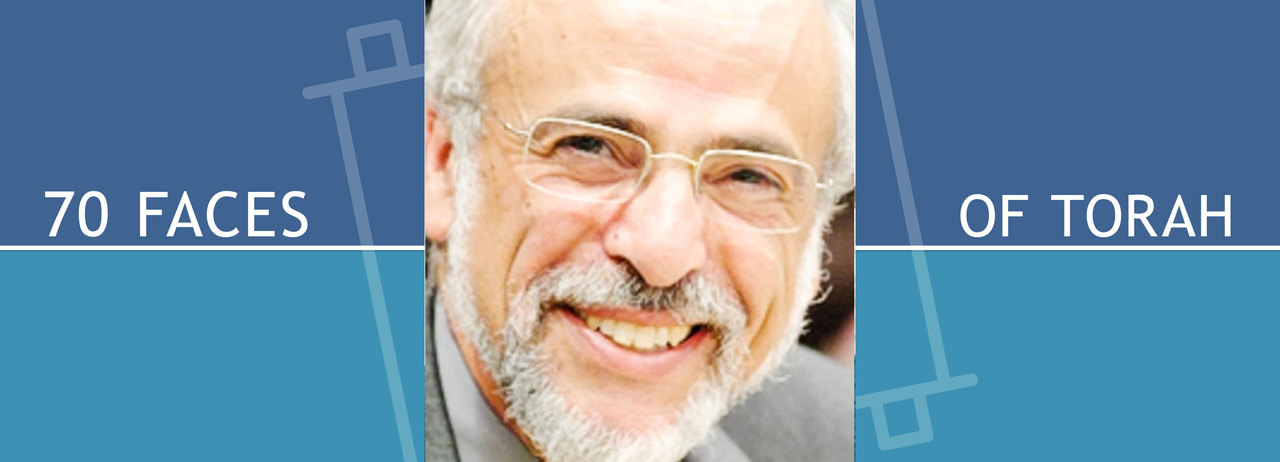Numbers Joshua’s spies and the “zonah” in Jericho

Haftarat Shelach Lecha (Joshua 2:1-24)
We often make assumptions about people based on first impressions or on accepted stereotypes. Sometimes, however, on deeper consideration new aspects may be revealed to us. That teenager with the nose ring and the huge tattoo could be a Rhodes scholar. That old man with the stutter might have some important things to say.
There are many Jewish women in the Hebrew Bible who are unambiguously presented as heroes — brave people who through their selfless actions became saviors. One immediately thinks of Esther and Deborah.
The Bible also presents a number of non-Jewish women who are heroic: Tamar the Udalamite, the Egyptian midwives Shifra and Pua, Pharaoh’s unnamed daughter, Ruth the Moabite, Yael the Kenite, and Rahav the Jerichoan.
This week’s Torah portion, Parashat Shelach Lecha, centers around themes of scouts or spies sent ahead and the aftermath of their false report. The Haftarah tells Rahav’s story, which also begins with spies sent ahead. Joshua, the new leader of the Israelites, sends a pair of spies to see what it will take to capture the city of Jericho. So they set out, eventually lodging for the night at the home of a woman named Rahav. The king of Jericho finds out there are Israelite spies staying at Rahav’s place and demands that she hand them over. Here is where Rahav becomes a hero. Disobeying the orders of her king, she saves the Israelite spies and thus ensures the success of their mission. She professes allegiance not to her land and its gods, but to the God of Israel. What happens next is told in story and song: The Israelite army under Joshua’s command surrounds the city of Jericho, blowing on horns. The walls of the city collapse and the city is destroyed. Only Rahav and her family are spared as a reward for her heroism.
In the text, Rahav is called a zonah, which typically is translated as prostitute. In the Bible as in contemporary society, prostitutes tend to be regarded with harsh judgment and relegated to the margins. Biblical law stipulated that a zonah, if found guilty, should be stoned to death or burnt alive! (Leviticus 21:9) Yet Rahav is portrayed as a good person, despite her profession. Rahav is brave, decisive, and quick to give orders. She acknowledges the existence of the Israelite God, and defies her own king in order to help the Israelites.
Could a zonah be a hero?
Indeed, in post biblical literature, Rahav is portrayed as a beautiful person, regardless of her status as a zonah. The Babylonian Talmud (Megillah 15a) links Rahav with three unquestionably virtuous and heroic women: “Our rabbis taught: There were four women of extraordinary beauty in the world: Sarah, Rahav, Avigail, and Esther.” The Talmud also portrays Rahav as a convert to Judaism, who, following conversion, married Moses’s successor, Joshua. (Megillah 14b)
Furthermore, in the Christian Bible (Matthew 1:5) Rahav is understood to be the wife of Salmon, one of the two spies she sheltered. Their son was Boaz, who married Ruth, who was the grandmother of King David, among whose descendants was Jesus of Nazareth.
In these post biblical texts, Rahav, who begins triply marginalized—Canaanite, woman, and prostitute—moves to the center and merits our admiration.
Conventional wisdom suggests that Rahav is a woman of sin who becomes a woman of valor. But this is not just about teshuvah (repentance) or conversion; there is a lesson to be learned here. A lesson about the fallibility of our own perception. If we dismiss her only as a zonah, we fail to see that she was perceptive, had faith in the Israelites and in their God enough to defy her own government, even engaging in civil disobedience.
Perhaps the message is that we need to take a closer look at those others who are seemingly marginalized and demonized. Although our first instinct may be to reject them, they may be the righteous ones. Perhaps even our saviors.
Joshua R. Jacobson is founder and director of Hebrew College shared-campus partner Zamir Chorale of Boston. He served for 45 years as Professor of Music and Director of Choral Activities at Northeastern University, and for 33 years as Visiting Professor at Hebrew College. He has guest lectured and taught workshops for schools, synagogues, festivals and conventions throughout North America and in Germany, Australia and Israel and is the author of Chanting the Hebrew Bible, a finalist for the National Jewish Book Award. Learn more at joshuajacobson.org.
Explore Graduate Programs Tamid Adult Learning Classes Support Our Work

